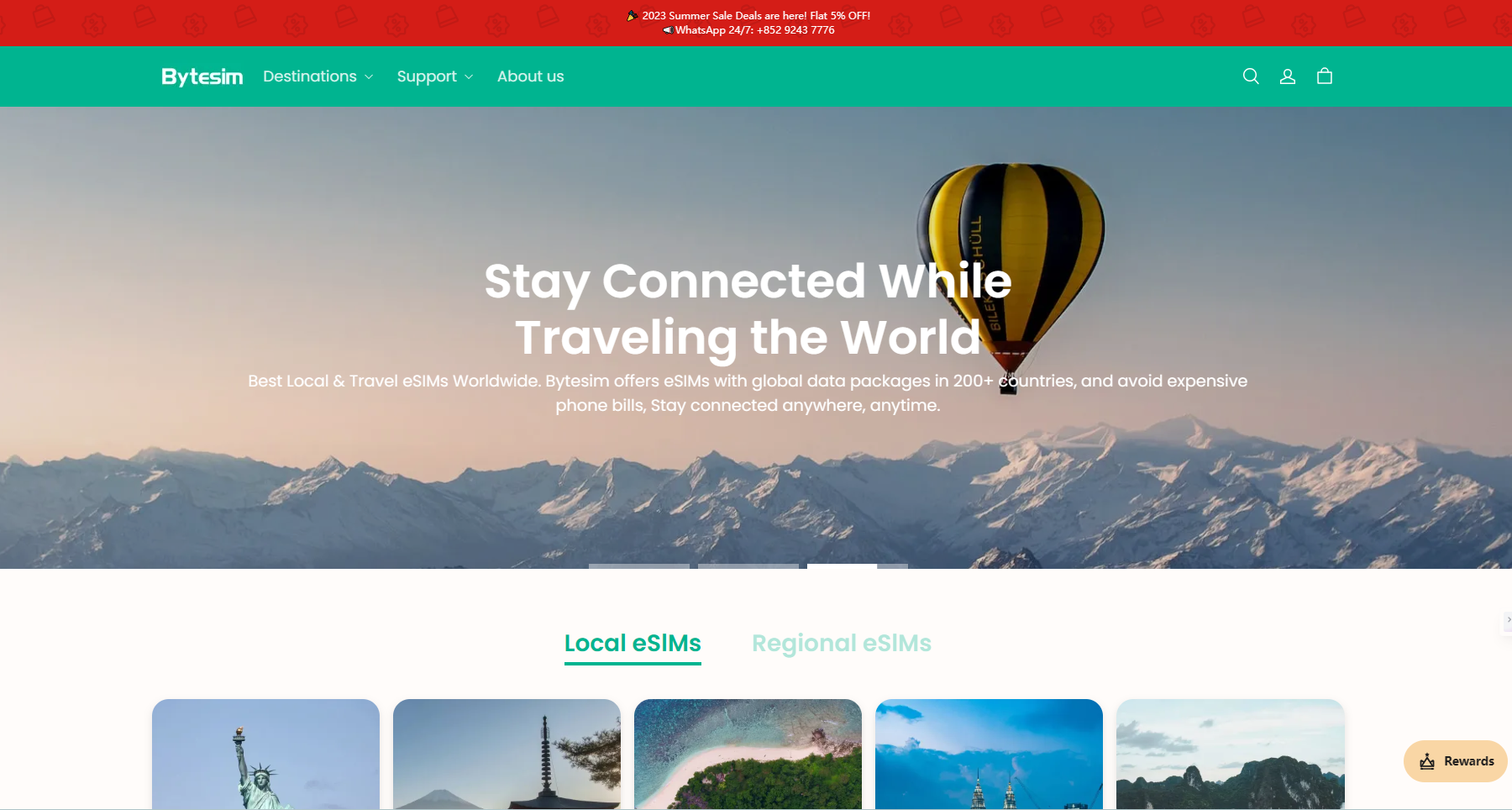Why Are International Roaming Charges so High?
Sep 28,2023 | Tom
Reasons Why IR Charges so High?Why the IR Network Is Not Always Stable? How to Avoid the Money-Killer and Be Connected in Other Ways?You May Interested In:

photo top view of wi-fi router with wireless controlled devices
In our daily life, there are a variety of ways to be connected to a network for travelers in a foreign country such as portable Mi-Fi, data packages, SIM/eSIM data plans, public Wi-Fi, International Roaming(IR) and the like. The charges vary from one another But among them, international roaming always tends to charge far higher, and even when mentioned the IR, we will associate it with more-kicks-than-halfpence things---- terrible and big-ticket. So, today we will delve into everything about IR.
Reasons Why IR Charges so High?
International roaming(IR) charges are often high due to several factors. When you travel abroad and use your mobile phone, your device connects to a foreign network operated by a different mobile carrier.
Here are some reasons why international data roaming charges can be high:
-
Agreements between Mobile Carriers
Mobile carriers have to establish agreements with foreign network providers to provide their customers with roaming services. These agreements involve various costs, such as wholesale rates, network access fees, and infrastructure expenses. These costs are often passed on to the consumer, resulting in higher charges for international data usage.
-
Currency Conversion and Foreign Tariffs
Currency conversion plays a role in international roaming charges. When you use data abroad, your usage is usually converted from the foreign currency to your home currency, and additional fees may be applied. Additionally, mobile carriers may be subject to higher foreign tariffs imposed by the network operators in the country you're visiting, which contributes to the overall cost.
-
Infrastructural Differences
Each country has its own infrastructure and operating costs for providing mobile services. In some cases, the infrastructure costs and operating expenses may be higher in certain countries, which can impact the roaming charges.
Why the IR Network Is Not Always Stable?
International Roaming can sometimes be unstable due to a few reasons. Here are some potential factors contributing to the instability of international roaming:
-
Network Incompatibility
Different countries and mobile network operators use various technologies and frequency bands. This discrepancy can lead to compatibility issues between your device and the foreign network, resulting in unstable connections or slower data speeds.
-
Network Congestion
Roaming users share the network infrastructure with local users and other roaming users. If the network experiences high congestion or heavy usage, it can lead to reduced signal strength, slower data speeds, and intermittent connectivity.
-
Distance and Signal Strength
The distance between your device and the nearest cellular tower can affect signal strength, especially in areas with weak coverage. If your device is far from the tower, the roaming connection may become unstable.
-
Roaming Agreement Issues
Interoperability between mobile carriers and network operators plays a significant role in the stability of international roaming. Inadequate or unstable roaming agreements can result in suboptimal service quality.
-
Differences in Infrastructure
Each country has its own network infrastructure and operating standards. In some cases, the infrastructure in the country you're visiting may be less developed or technologically advanced, leading to a less stable roaming experience.
It's important to note that these factors can vary depending on the destination, your home mobile carrier, and local network conditions. While you may encounter instability during international roaming, there are steps you can take to mitigate the issues. These include checking for network compatibility, selecting a reliable network manually, ensuring your device's software is up to date, and contacting your mobile carrier for assistance or troubleshooting.

photo global communication background, business network design
How to Avoid the Money-Killer and Be Connected in Other Ways?
To avoid high international data roaming charges, here are some strategies you can consider:
-
Utilize Data Roaming Settings
Before traveling, check your device's settings to ensure that data roaming is turned off. This will prevent your device from connecting to foreign networks and incurring roaming charges unintentionally. You can still connect to Wi-Fi networks for internet access.
-
Use Wi-Fi Where Possible
Whenever you have access to a Wi-Fi network, such as in hotels, cafes, or restaurants, switch to Wi-Fi and avoid using mobile data. This can help you avoid incurring roaming charges altogether.
-
Purchase a Local SIM Card
One of the most effective ways to avoid high roaming charges is to buy a local SIM card in the country you're visiting. This allows you to access local mobile networks at their regular rates, which are often significantly cheaper than roaming charges.
-
Modify your Mobile Plan
Check with your mobile carrier to see if they offer any international roaming packages or add-ons that provide discounted rates for data usage abroad. These plans can help reduce the cost of roaming charges compared to standard rates.
-
Get an eSIM card
Many providers such as Airalo, Holafly, ByteSIM and Nomad offer eSIM data plans specifically designed for international travelers. These options provide affordable data plans for multiple countries, allowing you to stay connected at reasonable rates.
Take ByeSIM as an example:
you can customize your destination data plan by data amounts, validity time, quantity and even unlimited data selections in some countries(such as the U.S., Vietnam, Malaysis and so on), altogether 40-50 selections for each destination. Besides, no worry about network coverage, cuz the eSIM serivces cover 200+ countries and areas from east ( China, Japan, South Korea) to west( European coubntries and America), from north( Russia, Iceland) to south( Australia, New Zealand) and even many African countries are included( Madagascar , Uganda , Sudan and the like)

Remember, it's important to research and compare the available options in your destination country and consult with your mobile carrier to determine the best approach to avoid high international data roaming charges.
You May Interested In:




